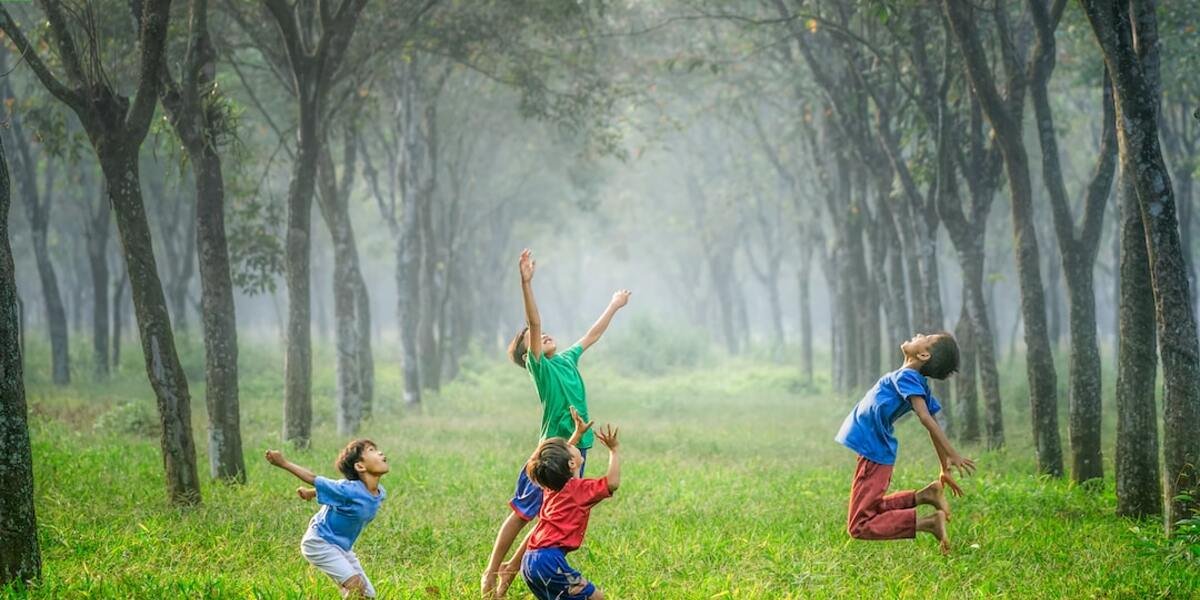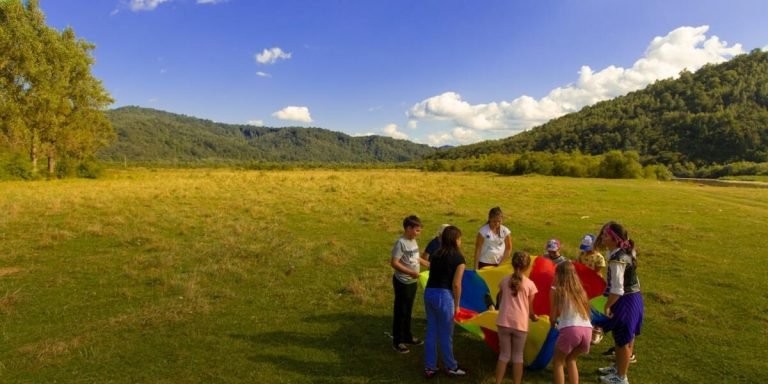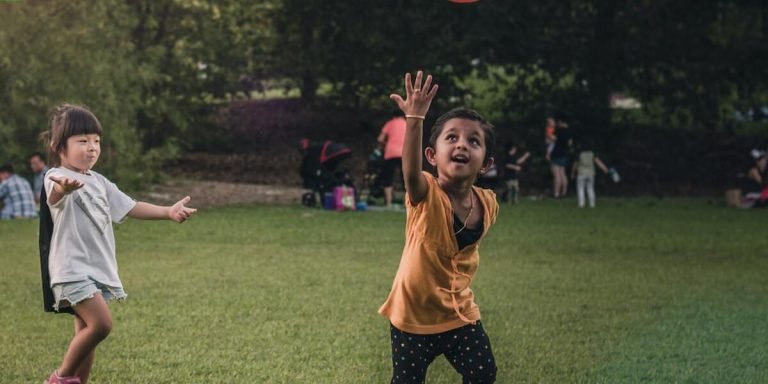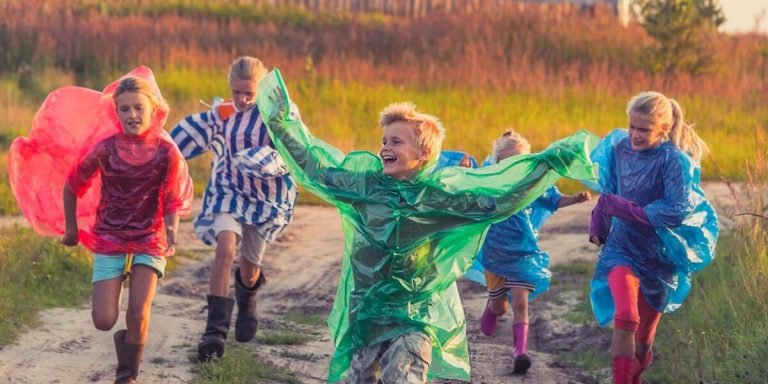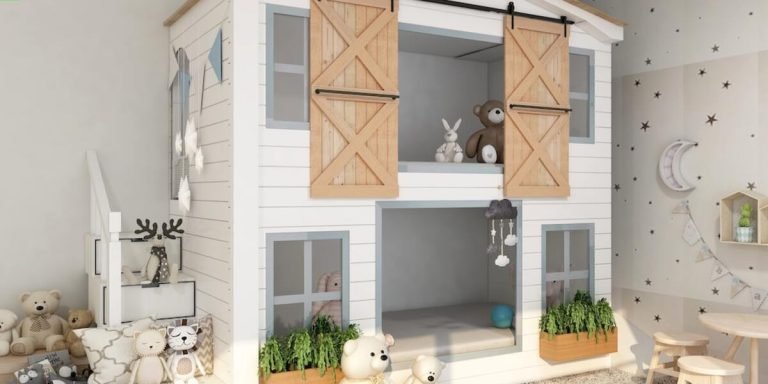Activities for Toddlers to Cultivate their Creativity and Cognitive Skills
Fostering the burgeoning creativity and cognitive skills of our little ones is a top priority for all parents. It isn’t just about keeping them occupied – it’s also crucial to their development, and this can be achieved through well-chosen “activities for toddlers”. These activities play an instrumental role in shaping their early learning experiences while stimulating imagination, instilling problem solving aptitude, promoting social interaction capabilities and much more.
Experiential or activity-based learning takes center stage in modern education. Rote memorization from textbooks alone is a thing of the past. Today’s pedagogical approach focuses on experience-led knowledge cultivation, where children:
- Explore concepts hands-on
- Engage in enjoyable activities
- Understand notions as concrete rather than abstract
Did you know?
Despite their small size, toddlers have a brain that is nearly 90% the size of an adult’s! This quick development makes early childhood an important period for cognitive skill and creativity growth.
Understanding the Impact of Experiential Learning on Toddler Development
Experiential learning has become a cornerstone in the field of early childhood education, especially for toddlers. It’s more than just an instructional method – it’s a philosophy that integrates lessons into experiences and activities to foster intellectual growth. By engaging toddlers in hands-on exploration or ‘learning by doing’, educators not only make content relatable but also stimulate curiosity which inevitably leads to lasting knowledge.
2023 sees this innovative approach being increasingly adopted across various childcare settings due to its efficacy at enhancing cognitive development in young learners. When equipped with activities like puzzles, building blocks or role-play scenarios tailored for their age group, toddlers get to navigate problems first hand instead of through theory from textbooks. This active engagement results in improved problem-solving skills and better memory retention amongst children.
Furthermore, experiential learning is instrumental towards nurturing soft skills such as social interactions and emotional intelligence among toddlers; crucial attributes often overlooked by traditional pedagogies. As kids participate actively within these activity-based environments they interact with peers fostering critical socio-emotional connections promoting empathy, patience,and cooperation – vital life skills essential beyond the classroom setting well into adulthood.
The Role of Sensory Play in Enhancing Cognitive Skills
Sensory play emerges as a fundamental part of experiential learning for toddlers. Essentially, it involves activities that stimulate a child’s senses such as sight, smell, touch, taste and hearing. These immersive experiences actively contribute to the cognitive development in young children.
Let’s take an example: when engaging one-year-olds with sensory bins filled with textures like sand or water beads – these are hailed as thrilling ‘activities for toddlers’. They’re not just fun-filled exercises but formative ones too! Toddlers love exploring through tactile interaction which boosts their fine motor skills.
Besides this physical engagement, what happens behind the scenes has profound impacts on brain growth. When our little explorers scoop sand into buckets or squish water beads between their fingers – they’re enabling neural connections to enhance mental agility down the line!
Another sensational pathway is via aromatic adventures – surprisingly simple yet wildly impactful ‘activities for toddlers’. Introducing them to different smells stimulates olfactory nerve activation linked directly with memory formation and emotional understanding; crucial elements underpinning cognitive advancement.
Additionally using sound-based games can resonate deeply within toddler’s auditory cortexes– promoting language absorption whilst nurturing creative thinking capacities simultaneously–and all amid peals of laughter!
Taste testing isn’t left out either from this delightful banquet of discovery-oriented ‘activities for toddlers.’ Sampling varied food items enriches gustatory comprehension alongwith nutrition awareness thereby making meal times educational journeys on their own merit!
Fostering Emotional and Social Growth Through Structured Activities
Experiential learning plays a pivotal role in the emotional and social development of toddlers. It goes beyond traditional teaching methods to engage children actively, providing them with hands-on experiences that foster growth on multiple levels. In this context, structured activities for toddlers are immensely beneficial.
One area where experiential learning shines is emotional development. Activities designed around concepts such as identifying certain emotions enable your toddler to grasp these abstract ideas concretely through first-hand experience – they learn by doing rather than hearing or observing alone. For example, an activity involving making faces in a mirror while discussing various feelings can assist toddlers tremendously in understanding complex emotions better.
Additionally, incorporating activities such as storytelling sessions wherein characters display different sentiments allows your child not only to recognize but also empathize more effectively with varying emotional responses.
The same principle applies when it comes to promoting social improvement among young ones. Making friends or interacting appropriately within their age group might seem daunting initially for most preschoolers; however, playful exercises aimed at fostering teamwork can be the perfect remedy here.
Key Elements of Designing Effective Activity-Based Learning for Toddlers
Creating effective activity-based learning for toddlers requires a blend of strategic thinking and purposeful creativity. The key lies in balancing the need to engage young minds with fun-filled tasks while ensuring that these activities provide valuable teaching moments. Activities designed should stimulate their curiosity, unleash their creative potential and contribute to their overall cognitive development.
When designing experiential or activity-based lessons, it’s essential we respect toddlers’ natural instincts – exploring everything around them intently. Touching, feeling and experimenting are integral parts of children’s early years education experience; hence educators must furnish an environment where kids can practice this exploration safely. For example, sensory play involving materials like sandpaper strips or textured balls encourages tactile acclimation which is crucial at this stage.
Further still, the planning needs to integrate a multitude of skills into every project targeted towards our little learners- be it problem-solving abilities through simple puzzles games or fine motor skill enhancement using clay modeling sessions. Mindfully integrating multiple competencies within single activities reaffirm real-world application scenarios contributing significantly towards long-term knowledge retention amongst youngsters.
The process doesn’t stop there though! It has got another pivotal aspect – reflection on experiences gained from such exercises for consolidating learnings achieved thus far which lastly aids in shaping up dynamic future curriculum strategies as well suiting individual learner demands perfectly so too offering personalised mentoring benefits ultimately leading toward higher success rates among students all throughout schooling life phases indeed making educating fun besides being fabulous always!
Age-Appropriate Activities That Stimulate Curiosity and Engagement
In the world of early education, interactive and engaging activities for toddlers serve as a powerful tool in promoting development. A well-thought-out sequence of play-based tasks can stimulate curiosity, enhance creativity and nurture critical thinking skills among little ones.
Firstly, think sensory exploration: Activities that involve touch, taste, or smell are especially beneficial at this stage. For example, creating an edible paint from yogurt and food coloring provides a safe platform for toddlers to engage their senses while exploring colors – definitely fun!
Secondly, include problem-solving exercises like simple puzzles or shape sorter toys which challenge young minds but remain achievable enough to keep frustration at bay. These kinds of challenges will help develop cognitive abilities besides encouraging persistence.
Third on our list is imaginative play: Encourage make-believe games where your toddler could pretend to be different characters with assorted props such as hats or scarves. This type of activity not only promotes emotional development through empathy but also enhances language skills by dialoguing “in character”.
Physical movements should not be undermined either! We live in 2023 when kids’ online screen time has increased significantly due to technological advancements.. Outdoor pursuits like sandbox digging or water-play offer wonderful opportunities for developing gross motor skills alongside fostering active lifestyles right from the beginning.
Lastly yet crucially incorporate musical elements into daily routines; dancing boosts coordination whilst singing supports language acquisition plus memory recall – it’s simply a joyous way towards learning!
Balancing Structure and Freedom in Toddler Learning Environments
In the world of early childhood education, there’s a critical need to balance structure and freedom. Especially in activity-based learning or activities for toddlers, both elements play an integral role. The blend offers youngster learners a conducive environment that fosters creativity while also instilling discipline.
Structure is essential when setting up any form of toddler learning environment. It gives children an understanding of what’s expected from them during each activity session. With set routines for different tasks like storytelling sessions or hand-painting activities, our tiny tots not only get familiarized with schedules but they also learn how to manage their time effectively.
While implementing structure does wonders in teaching youngsters discipline and orderliness,it shouldn’t be overly rigid as this can hamper curiosity and limit exploration . And here’s where the element of freedom comes into play!
Freedom paves way for experiential learning opportunities by allowing toddlers to make independent choices about which educational games they want to try out or what art supplies they wish to use.This encourages decision-making skills at a young age while developing self-confidence .
Undeniably , more often than not,the most effective “activities for toddlers” are those streaming from unstructured playtime.Children have chances then,to marvel over bugs on leaves,dance under open sky,giggles bursting forth.From constructing abstract LEGO structures,imagining being astronauts zooming past stars,toddlers unleash remarkable creative abilities fostering cognitive growth through these unstructured interactions.
Measuring Success in Experiential Learning for Young Children
Experiential learning for young children, including toddlers, hinges on the notion of ‘learning-by-doing’. Instead of traditional classroom environments where information transfer is one-way and passive, experiential learning requires active engagement in activities. The hands-on practices involved provide an enriching environment that supports cognitive development alongside social skills enhancement.
When we speak about measuring success in this type of education model with respect to our little ones engaging in “activities for toddlers”, it’s key to remember that each child has individual strengths and pace. Observations become much more valuable than standardized tests or benchmark statistics used commonly within conventional education systems. Rather than focusing solely on language or numerical abilities, observe how a toddler interacts with peers during group-based tasks; note if they can follow multi-step directions while participating in art projects.
Finally yet importantly, fostering intrinsic motivation is crucial as external rewards may not align perfectly well when defining success from an experiential perspective. As parents and educators guiding their journey towards holistic growth through 2023’s most innovative early childhood educational methodologies – successes are gleaned from joyous expressions post-task completion or curiosity-laden questions sprouting naturally while engaged in these activities designed specifically for them.
Next up would be returning back to the activity details itself – pointing out age-suitable resources or materials needed plus important safety measures parents should consider beforehand could help improve its implementation effectiveness besides ensuring adults have set realistic outcome expectations hence mitigate undue pressure exerted onto our younger generation today!
Tracking Milestones: Observational Techniques to Gauge Progress
The fascinating part of experiential learning is that every child reacts differently. Some might find joy in the simplest “activities for toddlers,” while others may unearth hidden talents or a love for specific subjects.
Observing and assessing children during these activities are crucial when gauging progress and success. This evaluation through observational methods helps identify each toddler’s level, strengths, weaknesses, interests, developments as well as areas needing improvement.
One method involves carefully watching toddlers during their playtime or activity sessions. Not just looking out for who is having fun but paying attention to those showing increased interest levels towards certain tasks – ones they get involved in with more enthusiasm than usual. It provides vital clues about what form of experientially engaging contexts resonates best with them.
Additionally, educators can notice significant signs by simply observing how quickly kids grasp instructions provided before an activity commences! Rapid understanding often signifies keenness towards practical involvement instead of theoretical teaching styles which makes learning both easier and enjoyable to such youngsters!
Another excellent approach includes observing improvements over time: repeat the same “activities for toddlers” after intermittent periods – noticing changes in speed accomplishment or quality output shows genuine growth!
Finally yet importantly—Keep track also on social skill development; Experiential learning isn’t only about academic abilities—it shapes interpersonal skills too! Sharp observational techniques will point out any transitions from withdrawn behaviours into participative nature gradually fostered due participation amongst group-play i.e., essential life-skills evolution process we aim at via early childhood education.
Encouraging Reflective Thinking Post-Activity: A Guide for Parents and Educators
Incorporating “activities for toddlers” within the scope of experiential learning can be a brilliant strategy to encourage reflective thinking. It’s important that parents and educators alike engage children in thought-provoking activities post-activity, instilling an early habit of critical reflection.
Next in line is storytelling prompts which are also impactful tools in enhancing reflective thinking. After an activity like ‘role play,’ invite them to narrate what occurred during role-play creatively using characters, events, and emotions they felt at different points.
Moreover, visual aids can be helpful while conversing reflections on activities for toddlers. Utilize photographs from recent field trips or drawings made by kids as conversation starters towards effective recall making it more interesting!
Lastly but most importantly – take up practice-oriented discussions after every active session! For instance – Post DIY craft time discuss things such as safety measures taken (using scissors), value derived (patience) enlightening them subtly regarding practical life practices!
Journals should not just be limited merely adults; introducing journal keeping from toddlerhood encourages articulation of thoughts clearly aiding cognitive development significantly over the years.
Conclusion
As we’ve explored, the journey of learning through play can be a vibrant and delightful one indeed. These “activities for toddlers” aren’t just fun and engaging tick-box tasks; they are building blocks that steer our little explorers towards developing essential creativity and cognitive skills. So go ahead- turn your floors into alphabet hopscotches or orchestrate an indoor sensory walk – because every splash of color, every playful laugh holds potential for deeper insights.
Hope you find these ideas inspiring to foster your toddler’s boundless curiosity. Keep in mind that every child is unique and grows at their own pace. Explore our website for more invaluable childhood education information – you’re sure to find something enlightening here at [Website Name].
We offer:
- Advice specifically tailored for parents navigating early education issues
- Resources exclusively designed for educators aiming to enhance learning experiences
We’re committed to being your trusted partner on the beautiful path of parenting and educating.

